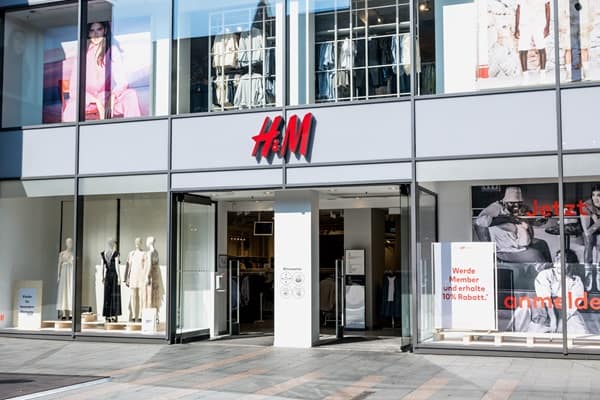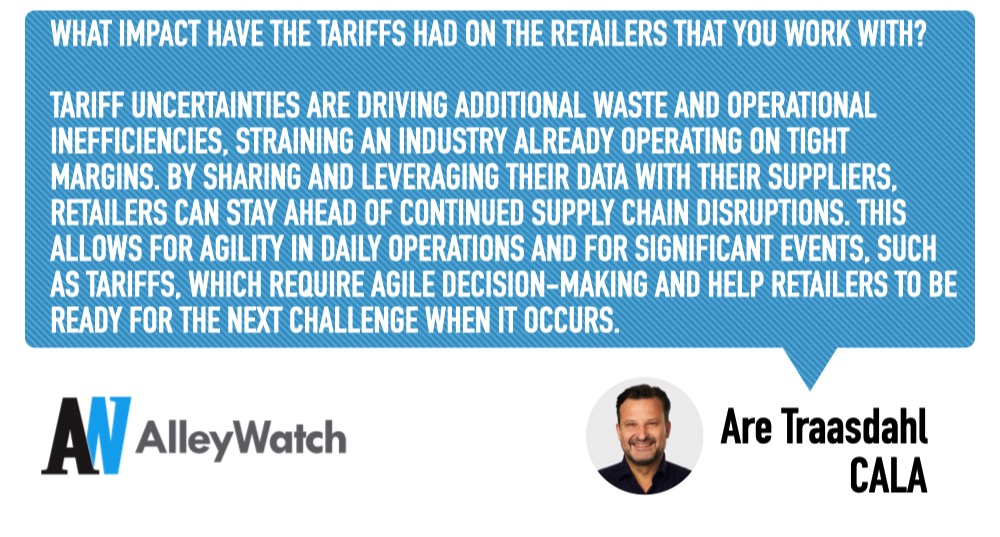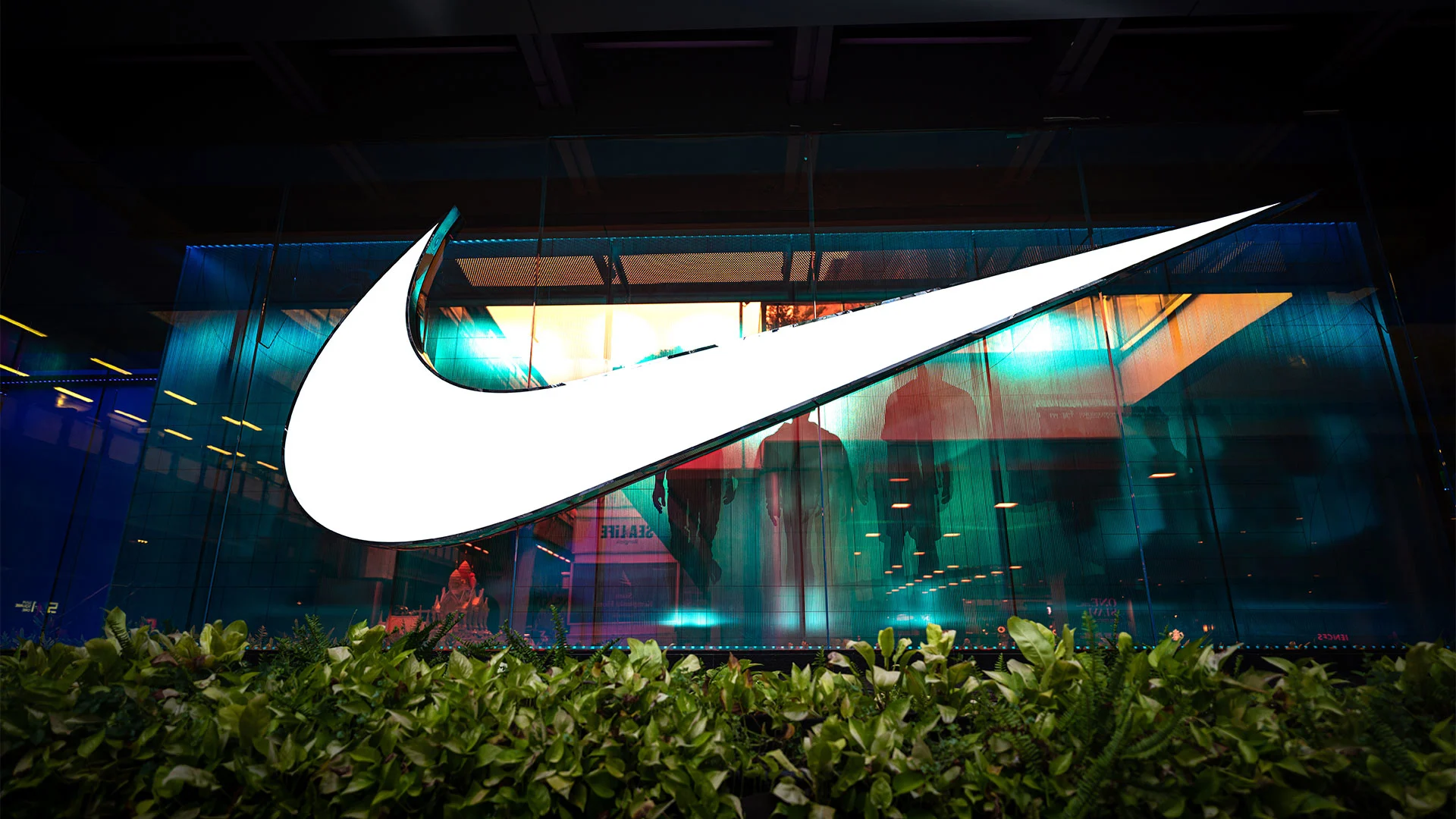#supply-chain
#supply-chain
[ follow ]
#tariffs #e-commerce #ai #semiconductors #memory-chips #critical-minerals #notepad #walmart #automation #manufacturing
fromBusiness Insider
1 day agoGoogle Deepmind CEO says the memory shortage is creating an AI 'choke point'
AI companies are duking it out for greater and greater quantities of memory chips. The problem? The industry is heavily supply-constrained. Costs have skyrocketed, products have been tied up, and some companies - especially those in consumer electronics - are increasing prices. On the AI front, Google DeepMind CEO Demis Hassabis told CNBC that physical challenges were "constraining a lot of deployment."
Artificial intelligence
fromRealagriculture
3 days agoCRSB introduces new producer incentive for certified operations
The CRSB Certified Producer Incentive will provide a $400 payment in 2026 to eligible beef producers who maintain active certification by June 30, 2026, or who were certified at any point between January 1, 2025, and June 30, 2026. Producers must hold a valid certificate from a CRSB-approved certification body and meet all qualifying cattle requirements to receive the payment.
Canada news
fromThe Verge
2 days agoThe RAM shortage is coming for everything you care about
Do you have a phone in your pocket you'd like to upgrade in the next few years? Fancy a game console or handheld? A laptop, perhaps? Will you need a new router, whether you're purchasing outright or renting from your ISP? Each of these devices is expected to have shortages, price hikes, or both in 2026. And even if you don't plan to buy, you depend on goods and services from others who'll be paying more to upgrade their devices.
Gadgets
Miscellaneous
fromComputerWeekly.com
4 days agoDatacentre demand is huge but power and skills hold things back, survey shows | Computer Weekly
Demand for European datacentres outstrips supply due to power constraints, severe skills shortages, supply‑chain volatility, rising costs, and facilities often unready for AI deployments.
Food & drink
fromLondon Business News | Londonlovesbusiness.com
5 days agoRetailers warn of possible fruit and veg shortages - London Business News | Londonlovesbusiness.com
UK fruit and vegetable supplies face temporary shortages and price rises due to transport delays, rising costs, and extreme weather affecting imports.
Brooklyn
fromBrooklyn Paper
1 week agoThese Brooklyn florists are rethinking Valentine's Day with seasonal blooms * Brooklyn Paper
Seasonal, locally sourced flowers offer a lower-environmental-impact Valentine's alternative to imported roses while supporting local farms and reducing fuel-intensive supply chains.
fromGSMArena.com
1 week agoiPhone 18 Pro and iPhone 18 Pro Max pricing leak brings some good news
The iPhone 18 Pro and iPhone 18 Pro Max will cost exactly the same as their predecessors, according to a new research note from GF Securities analyst Jeff Pu, a constant purveyor of Apple-related supply chain information. That is obviously very good news, if it pans out, since the pricing stability of smartphones is anything but guaranteed this year given how memory production seems to mostly be going to AI data centers.
Mobile UX
fromFortune
1 week agoWhy GM's supply chain chief sees groupthink as a business liability | Fortune
Shilpan Amin sits at the operational core of General Motors. As the global chief procurement and supply chain officer, his remit cuts across engineering, manufacturing, finance, and the company's vast supplier network. At GM's scale, procurement is not simply about buying parts. It determines how capital is deployed, how risk is priced and absorbed, how quickly vehicles move from design to launch, and how the company navigates geopolitical shocks while protecting long-term margins.
Business
fromGSMArena.com
1 week agoThe T1 Phone from Trump Mobile is still happening but specs and design have changed
Some last minute changes to the design and hardware are the reason why. The updated chassis has a more prominent camera island with three vertically stacked camera sensors, but the execs said that the T1 logo is going away. The gold paint job and the American flag are here to stay. Moreover, the official website now states that the handset is only assembled in the US, but components are manufactured elsewhere, without giving any more details.
Mobile UX
fromFortune
3 weeks agoPfizer CEO says he used 'emotional blackmail' to get employees to achieve impossible goals during COVID-19 | Fortune
Specifically, his team was tasked with creating a vaccine to combat the new illness from scratch. Once created, Pfizer needed to far exceed prior shipping and supply chain constraints; at one point, it even had to produce its own dry ice because not enough was available externally. Prior to COVID, Pfizer had been producing only 200 million vaccine doses per year. That needed to scale quickly to 3 billion doses.
Business
fromBusiness Insider
3 weeks agoShipbuilders put 3D printed parts on a US aircraft carrier and submarine. The Navy liked the results.
The US Navy is betting on 3D printing parts to speed up work on the fleet while also cutting costs after two wins last year, the service said recently. A Naval Sea Systems Command release said that additive manufacturing moved "from a promising capability to a warfighting capability in 2025." Two examples the Navy said were among the service's most significant achievements last year involved putting 3D-printed parts on its most in-demand and complex vessels.
World news
fromTasting Table
1 month agoThese Familiar Grocery Chains Are Actually Owned By Kroger - Tasting Table
Walk into a Ralphs supermarket in California or a King Soopers in Colorado, and you might get a feeling vaguely familiar to shopping at Kroger. The signs are different, the store layout isn't quite the same, and local products mingle with store-brand ones - but the shopping experience still has a Kroger-ish ambiance. There's a reason for that, and you might not like it. About 20 favorite "hometown" regional grocery brands across America are actually part of the same huge Kroger family.
Business
fromFuturism
1 month agoThe Workers Building Labubus Are Allegedly Being Horribly Exploited
But beyond their sky-high resale price, the viral collectibles may come with a steep humanitarian cost as well. As The Guardian reports, New York-based labor rights group China Labor Watch (CLW) has accused the toys' maker, Chinese toy manufacturer Pop Mart, of employing 16- and 17-year-olds without offering them the necessary labor protections required by Chinese law. The group also alleges that these young workers aren't given adequate health and safety training, among other labor rights violations at the company's factory in Jiangxi province.
World news
fromBusiness Matters
1 month agoHigh Court rules forced labour claims against Dyson will go to trial in 2027
As part of the ruling, the High Court ordered Dyson to disclose a series of documents previously referenced in now-discontinued defamation proceedings brought by Dyson against Channel 4 News and ITN over reporting on alleged labour abuses. The documents to be disclosed include internal meeting minutes between Dyson and ATA in 2021, audit reports carried out between 2019 and 2021, correspondence from Dyson's chief legal officer, and records relating to requests for workers to work on rest days to increase production volumes.
Law
Information security
fromThe Hacker News
1 month agoNew Advanced Linux VoidLink Malware Targets Cloud and container Environments
VoidLink is a modular, cloud-native Linux malware framework enabling long-term stealthy access to cloud and container environments, targeting developer tools and cloud credentials.
Business
fromComputerWeekly.com
1 month agoInterview: Dawn McCarroll, director of supply chain and business excellence, Helios Towers | Computer Weekly
Helios Towers expands connectivity in Africa and the Middle East via digital supply chain solutions, local procurement, contractors, and its Impact 2030 growth strategy.
Alternative transportation
fromSustainable Bus
1 month agoEbusco nominates Gotion executive Hou Fei as COO as Michel van Maanen moves to EBS - Sustainable Bus
Ebusco nominated Hou Fei as Chief Operating Officer pending shareholder approval while shifting to an OED-only model focused on supply-chain robustness and industrial scalability.
fromTechCrunch
1 month agoNuclear startups are back in vogue with small reactors, and big challenges | TechCrunch
In the last several weeks of 2025 alone, nuclear startups raised $1.1 billion, largely on investor optimism that smaller nuclear reactors will succeed where the broader industry has recently stumbled. Traditional nuclear reactors are massive pieces of infrastructure. The newest reactors built in the U.S. - Vogtle 3 and 4 in Georgia - contain tens of thousands of tons of concrete, are powered by fuel assemblies 14 feet tall, and generate over 1 gigawatt of electricity each.
Venture
Information security
fromThe Hacker News
1 month agoVS Code Forks Recommend Missing Extensions, Creating Supply Chain Risk in Open VSX
AI-powered VS Code forks recommend non-existent Open VSX extensions, enabling attackers to register those namespaces and publish malicious packages that compromise developers.
Startup companies
fromTechCrunch
2 months agoFrom Roombas to e-bikes, why are hardware startups going bankrupt? | TechCrunch
iRobot, Luminar, and Rad Power Bikes filed for bankruptcy due to tariff pressures, supply-chain vulnerabilities, shifting markets, and competition from inexpensive overseas manufacturing.
Artificial intelligence
fromFood & Beverage Magazine
2 months agoFor Food Brands, AI's Power is in Action, Not Just Data - Food & Beverage Magazine
Food and beverage companies are rapidly adopting AI-driven automation to boost revenue and efficiency, connecting granular product-level systems and automating previously manual processes.
fromwww.aljazeera.com
2 months agoMexico's aerospace sector is growing. Will it be undercut in USMCA review?
In April, Mexican President Claudia Sheinbaum announced the country's aerospace industry could see sustained annual growth of as much as 15 percent over the next four years, and attributed the sector's expansion to a robust local manufacturing workforce, increasing exports, and a strong presence of foreign companies. Mexico is striving to become one of the top 10 countries in aerospace production value, a goal outlined in Plan Mexico, the country's strategic initiative to enhance global competitiveness in key sectors.
US politics
Healthcare
fromBusiness Matters
2 months agoSCA Group and Humanitarian Missions: How Integrated Inland Support Logistics Save Lives Worldwide
SCA Group provides integrated, military-grade logistics and on-site support to enable rapid, reliable humanitarian and disaster-relief operations in remote and damaged areas.
Food & drink
fromBusiness Insider
2 months agoTeens discovered my 57-year-old cheese shop on TikTok - and transformed my business
TikTok and Instagram-driven younger customers revived the Cheese Store of Beverly Hills while tariffs, currency swings, and pandemic disruptions created steep cost pressures and forced pivots.
fromFast Company
2 months agoThis U.S. company's new magnet could loosen China's stranglehold on the supply chain
High-power magnets undergird an enormous amount of modern society. From high-end audio speakers to electric vehicles, wind turbines, and fighter jets, they are a vital component in much of the technology we touch every day. To make them requires mining and refining rare earth elements -a supply chain largely controlled by China. Companies around the world are racing to find alternatives by using materials that are more abundant and cheaper to produce domestically. Minneapolis-based Niron Magnetics believes it has found a solution, claiming it can approach key aspects of rare earth magnet performance, using humble iron and nitrogen-albeit in an exotic formulation.
Science
Environment
fromFast Company
2 months agoTurning the tide on China's dominance of the rare earth market is possible. Here's what it would take
Rebuilding a U.S. rare earth supply chain is feasible but requires coordinated government, academic, and industry support to reduce reliance on Chinese dominance.
Information security
fromThe Hacker News
2 months agoResearchers Find Malicious VS Code, Go, npm, and Rust Packages Stealing Developer Data
Malicious VS Code extensions infected developer machines with stealer malware that captures screens, credentials, and exfiltrates data to an attacker-controlled server.
Environment
fromLondon Business News | Londonlovesbusiness.com
2 months agoSourcing sustainable lumber: Building a greener future - London Business News | Londonlovesbusiness.com
Sourcing sustainably harvested lumber is essential to protect forests, reduce carbon emissions, and support long-term responsible forest management.
fromFortune
2 months agoBuild-A-Bear stock falls 15% as it reveals the real hit from tariffs, at last | Fortune
The mall staple was able to get ahead of tariff impacts during the first half of the year through preemptive actions, Chief Financial Officer Voin Todorovic said in a statement Thursday, but the levies caught up to the company in its most recent quarter and will continue to weigh on its performance into 2026. "We expect this elevated level of impact to continue through the fourth quarter and into the next fiscal year," Todorovic said.
Business
[ Load more ]























